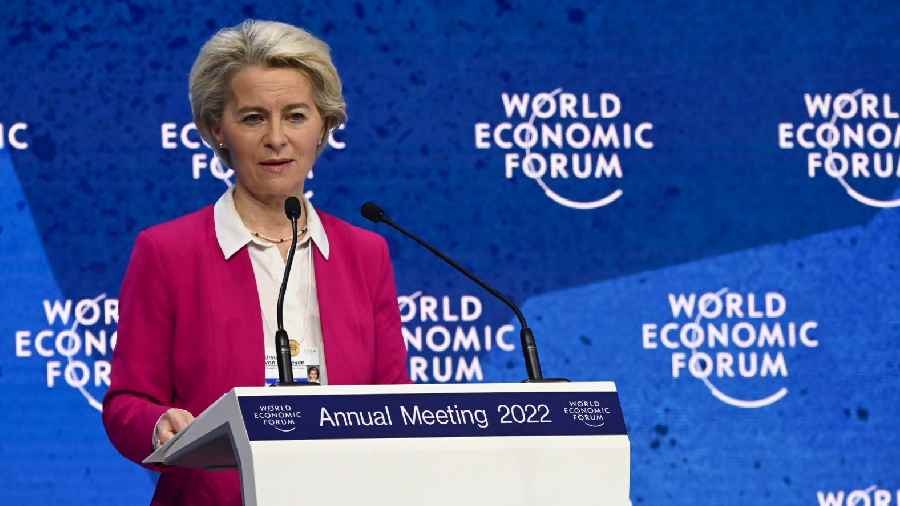EU leaders have agreed on an embargo on Russian oil imports that will kick in around the turn of the year — and for now exempts the pipeline imports that Hungary and two other landlocked Central European states rely on.
The ban, agreed overnight after weeks of wrangling, aims to remove 90 per cent of Russia’s crude imports into the 27-nation bloc within eight months or so, officials said.
It is the toughest sanction yet on Russia for its invasion of Ukraine, and one that will affect the EU itself.
Russia provided just over a quarter of EU oil imports in 2020, while Europe is the destination for nearly half of Russia's crude and petroleum product exports.
“The sanctions have one clear goal: To prompt Russia to end this war, to withdraw its troops, and to agree a sensible and fair peace with Ukraine,” German Chancellor Olaf Scholz said.
Ukraine said they would deprive the “Russian military machine” of tens of billions of dollars.
French President Emmanuel Macron said nothing could be ruled out regarding further sanctions, although other leaders poured cold water on the idea of banning purchases of Russian gas, which Europe depends on heavily.
EU countries will have six months to stop imports of seaborne Russian crude and eight months for refined products, the European Commission said.
That timeline will start once the sanctions are formally adopted, which EU states aim to do this week.
The oil embargo follows an earlier ban on Russian coal and allows the bloc to impose a sixth round of sanctions that includes cutting Russia's biggest bank, Sberbank, off from the SWIFT international transaction system.
Commission chief Ursula von der Leyen said the package would also ban EU firms from insuring or reinsuring ships carrying Russian oil.
Several countries already want to start work on a seventh round, but Austrian Chancellor Karl Nehammer said it could not include gas - where Russia supplies a third of EU needs.
“Russian oil is much easier to compensate for ... gas is completely different, which is why a gas embargo will not be an issue in the next sanctions package,” Nehammer said.
Russian analysts and traders said the phasing-in of the embargo gave Moscow time to find new customers in Asia.
“Although the measures announced by the European Union look threatening, we don’t see a crippling impact on the Russian oil sector — neither imminent, nor in six months,” analysts at Sinara Investment Bank said.
Beyond the sanctions, EU leaders asked the bloc’s executive Commission to explore options to tackle soaring energy prices. These include “temporary import price caps”, which should be explored with international partners, their conclusions said.
They also endorsed a commission plan to wean the EU off all Russian fossil fuels within years through a faster rollout of renewable energy, improvements in saving energy, and more investments in energy infrastructure.
And they called for better EU-wide contingency planning in case of further gas supply shocks.
Moscow on Wednesday cut gas supplies to the Netherlands for refusing to comply with a demand to pay in roubles.
Zelensky praise
Ukrainian President Volodymyr Zelensky on Tuesday welcomed a sixth package of EU sanctions against Russia but criticised what he called an “unacceptable” delay in the bloc agreeing the latest measures. Reuters
”When over 50 days have passed between the 5th and 6th sanction packages, the situation is not acceptable for us,” Zelenskiy said, speaking alongside Slovakia's President Zuzana Caputova in Kyiv.










